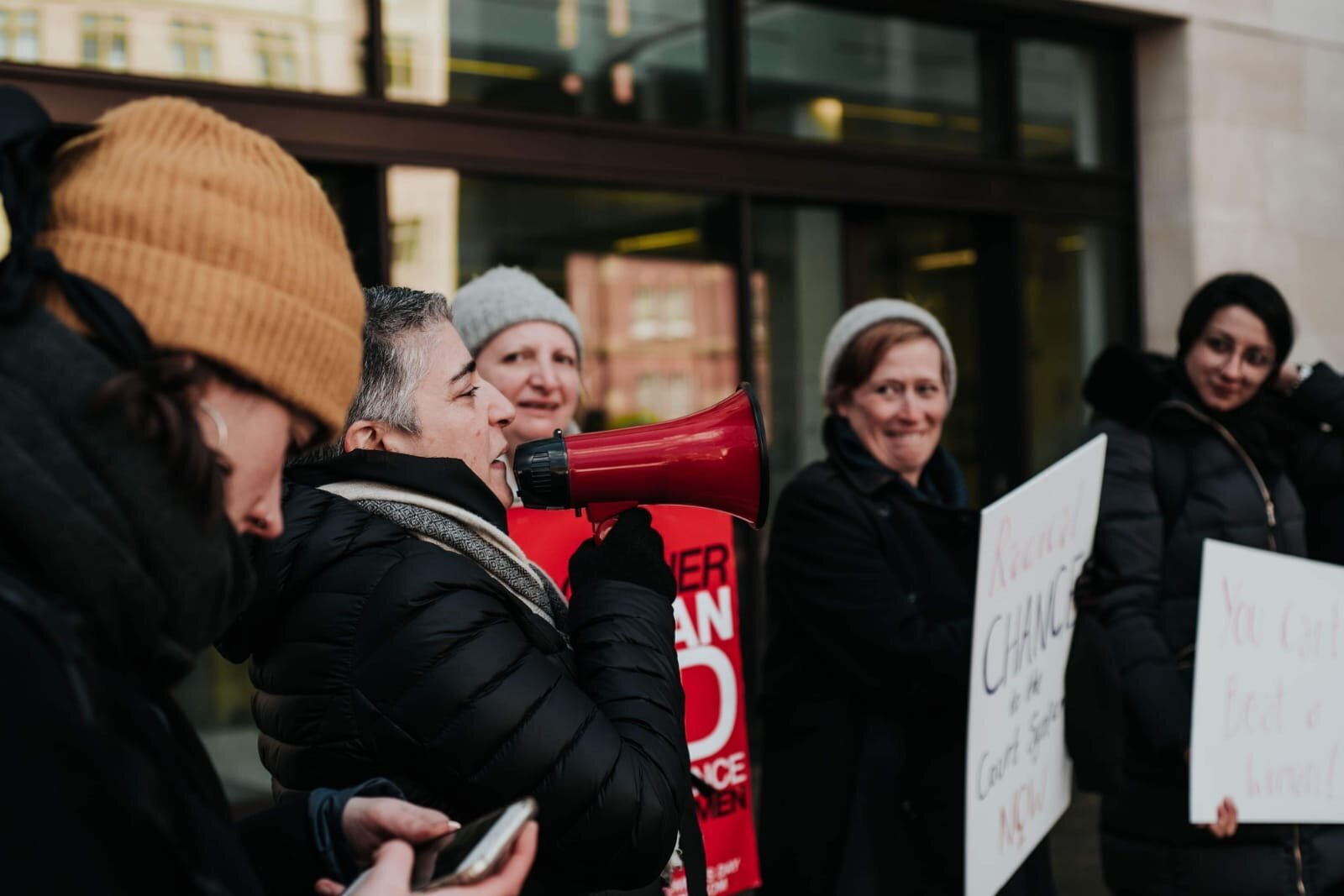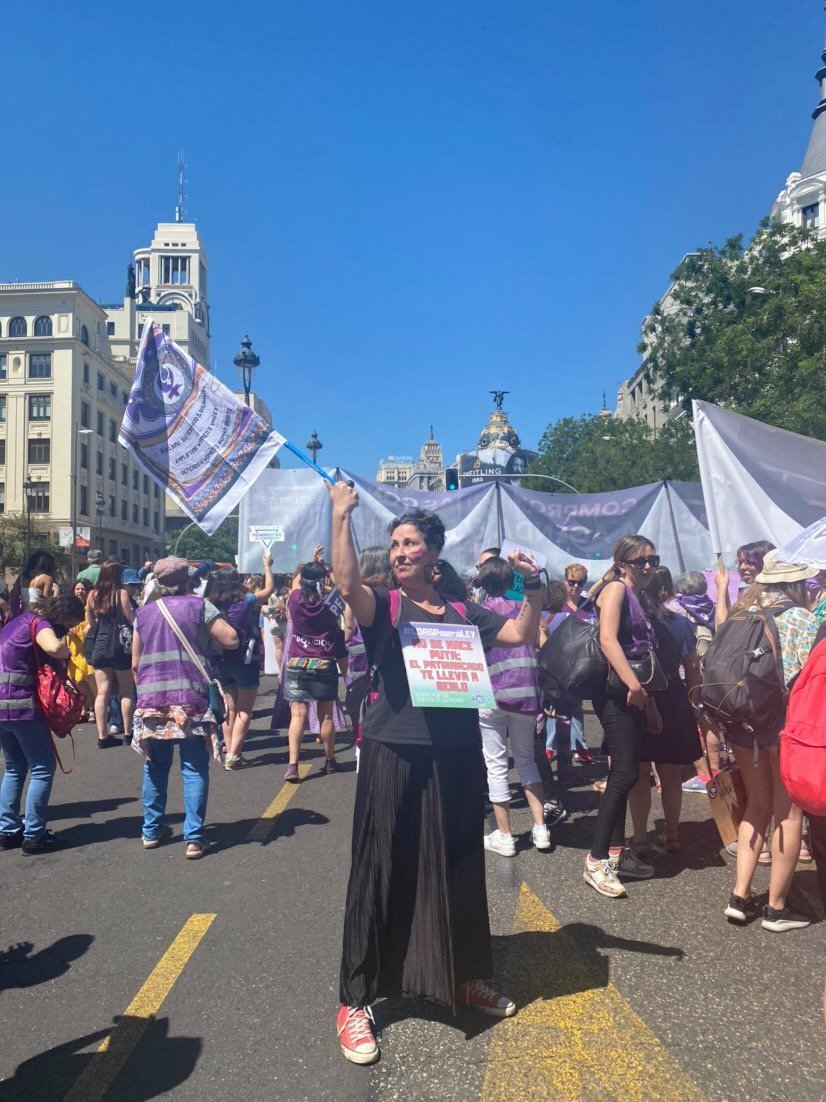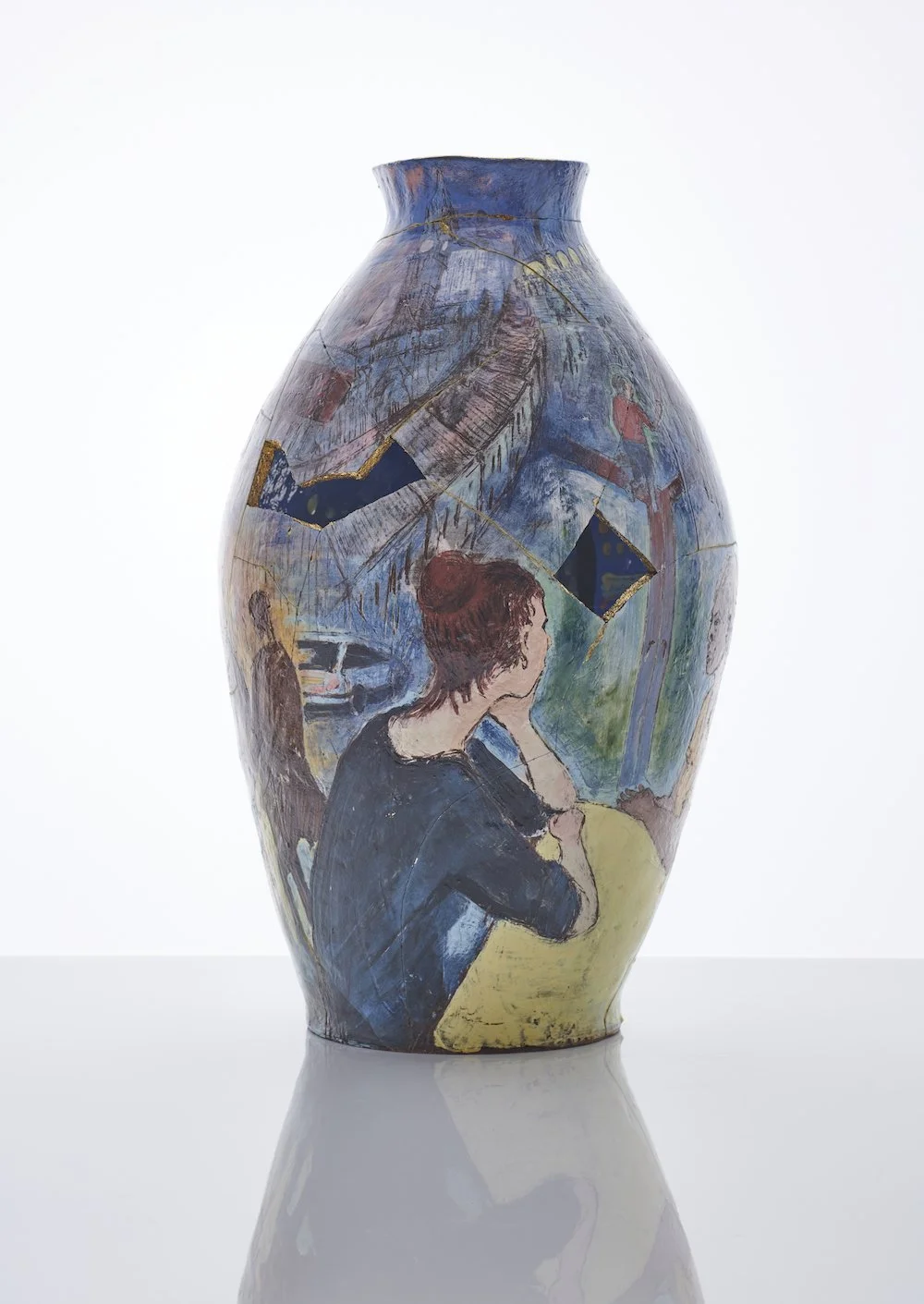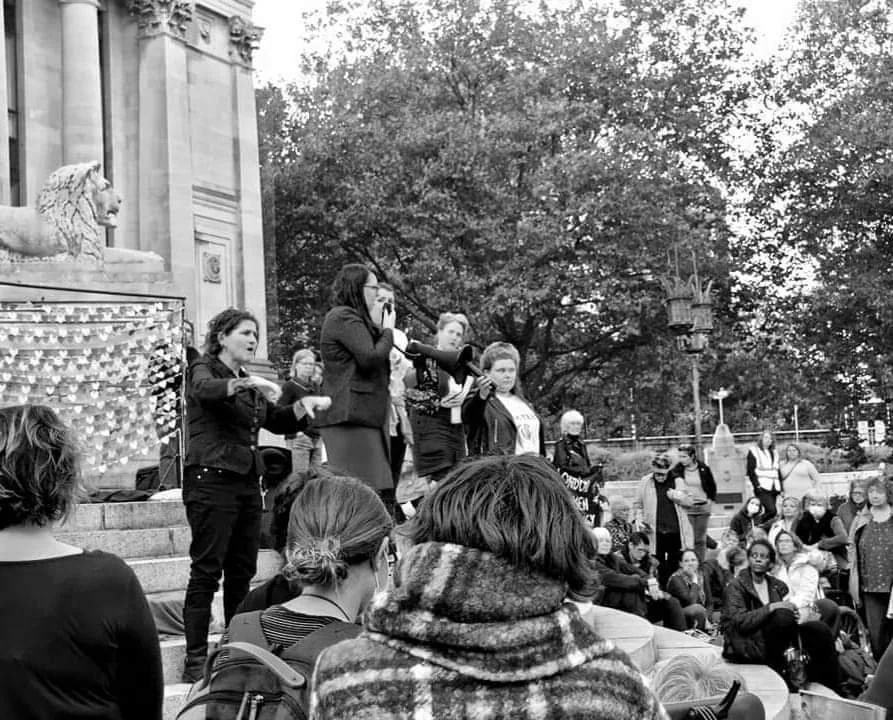FiLiA's detailed response to the Bertin Review published last week, in which we drew on the experiences shared by Women with direct experience of the industry, and we continue to push for them to be consulted in any further reviews. We welcome the Review and its recommendations and are reassured to see the Government recognise the urgent need to tackle the harms of pornography. However, we are clear there is no such thing as ‘safe’ pornography and more needs to be done to protect and support women and girls who are harmed by pornography.
Learn about the causes we are fighting for and how you can get involved.
Narrow your search or read everything.
The English version is followed by the French version.
La version anglaise est suivie de la version française.
This article marks the ten-year anniversary of Canada’s prostitution law reform, Bill C-36, also known as the Protection of Communities and Exploited Persons Act. This landmark legislation was a critical step in acknowledging the harms of the prostitution system, aiming to protect women and children from sexual exploitation while reducing demand and incidence. Over the past decade, feminist groups have actively evaluated and critiqued the law’s application, identifying both its successes and areas in need of improvement. This article provides a vital opportunity to understand the ongoing efforts to combat sexual exploitation, the challenges faced in implementing laws that prioritise equality, and the importance of relentless advocacy in the fight for a society free from exploitation.
Here at FiLiA in the Women First team, we firmly challenge the notion of prostitution as being in any way empowering. We consider it another form of male violence. As part of the Women First project, we have interviewed sex trade survivors who collectively have over 100 years’ experience of being in the sex trade. This has included street, escort, sugar daddy and brothel work. Their experiences were all different but many of the themes were similar, namely that trauma and abuse served as a gateway into the sex trade and that it takes time and specialist support to exit and recover from the sex trade.
Kiri Tunks is a veteran trade union and women's rights activist @kiritunks
This blog is based on a speech made by Kiri Tunks on behalf of the FiLiA Trade Union Project at a Labour Women’s Declaration fringe at the 2024 Labour Party Conference in Liverpool. In it, Kiri argues that women need to be at the head and the heart of the labour and trade union movement.
One wonders how the world’s largest human rights organisation, whose main claim is to ‘work to protect people wherever justice, freedom, truth and dignity are denied’ has found itself in opposition to women - some of whom have been victim to the most egregious suppression of their rights and dignity - discussing what has happened to them and why.
Porn and Porn-influenced culture is shaping the way children construct sexual behaviour and relationships. In this blog I outline a number of the harms of pornography and how teachers - as well as parents/carers and other professionals who work with children - can have clear and factual conversations with children about the harms of porn-influenced sexual abuse.
This piece combines the reflections of FiLiA’s Anti-Prostitution Lead Luba Fein and FiLiA’s Spokeswoman Raquel Rosario Sánchez after participating in the 4 th World Congress to Abolish Prostitution. The Congress was organised by CAP International, Canadian-based organisation La Cles, Breaking Free, the Vancouver Rape Relief and Women’s Shelter and the EVA Centre. At the end of the Congress, the organisations launched the Montreal’s Call for the Abolition of Prostitution, which is signed by more than 60 organisations.
Women and nature are both exploited under capitalist patriarchy - both legally and illegally. In addition, the climate crisis already disproportionately impacts women, who comprise 70% of the world's poor and face barriers to migration. Ecofeminism looks to women and nature for solutions to a man-made problem.
In March 2023, the Journal of Law and Economics published a study, "Do Prostitution Laws Affect Rape Rates? Evidence from Europe". The study claims that the liberalization of the sex industry reduces the incidence of rape. The article is a sensational statement that rests on dubious assumptions and weak methodological design.
Dr Em looks at why the mantra 'sex work is work' obscures the reality of what is being done to women and girls who are bought and sold by men and why teen magazines, student unions, and the media are celebrating the freedom to buy and sell sexual access to women's bodies as if it’s a new human rights issue of our time and a solution to poverty.
In this piece, FiLiA interviews leading feminist thinker, Janice Raymond, about her work on transgender issues and her new book Doublethink, which illuminates the “doublethink” of a transgender movement that is able to define men as women, women as men, he as she, dissent as heresy, science as sham, and critics as fascists.
The Hooters restaurant chain has made an application to open a branch in Salford, Greater Manchester which goes explicitly against the commitment by The Greater Manchester Combined Authority (GMCA) to tackling sexism, misogyny and gender-based violence and abuse. In this article, the local campaign group, Womanchester, explains why it is impossible for the GMCA to grant the licence application for Hooters without straying from this promise.
Documentary producer Alison Wilson joins FiLiA Volunteer Luba Fein to discuss her latest project ‘Exit’, a film about women who have been trafficked for sexual exploitation in Spain. Alison discusses the recruitment process, how any woman can fall victim to the sex traffickers, how hard the recovery is for survivors of human trafficking, and the devastating reality that many don’t make it to the end.
‘I was shattered. Now I’m piecing myself slowly back together”. Feminist artist and potter Claudia Care writes about raising awareness of women’s stories through pottery and the role of art as a campaigning tool. Her work depicts issues including lesbian rights, domestic violence, and the sex trade.
Gemma Aitchison, founder and director of YES Matters UK, looks at why violence against women and girls is dismissed purely because it is violence against women and girls. Gemma argues that society must treat them as credible witnesses to their own experiences and act accordingly to prevent an escalation of abuse.
FiLiA interviews poet and author Usha Akella about her new book ‘I will not Bear You Sons’, where her poems serve as the medium for the unsilenced voice both of her own story and those of women across various cultures. The interview explores the importance of poetry as a means of feminist expression and a tool for women to raise their voices against injustice.
We speak to Gemma Aitchison from Yes Matters about the Yes Matters Commitment, an initiative to tackle rape culture in schools. Helping schools to show pupils and parents alike that they are taking rape culture seriously and that they are taking the well being, safety and social development of their child seriously, the project teaches educators about consent, respect, good mental health and emotional regulation skills.































